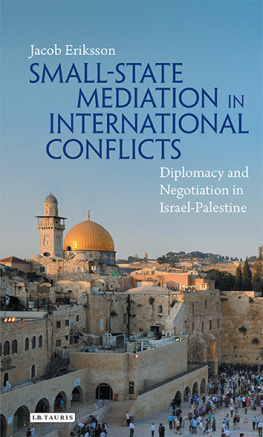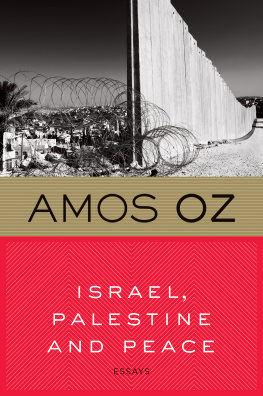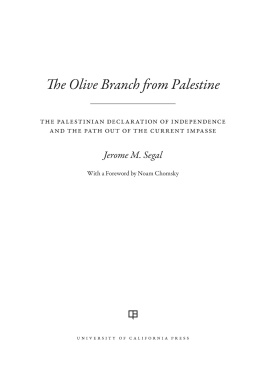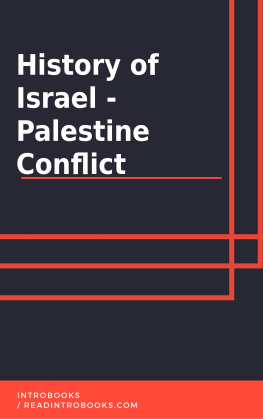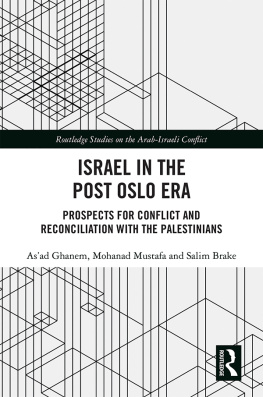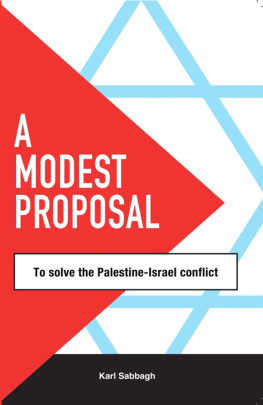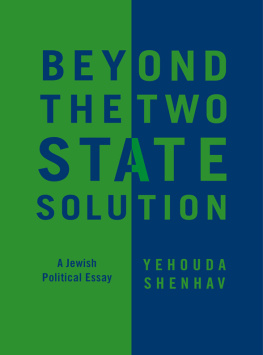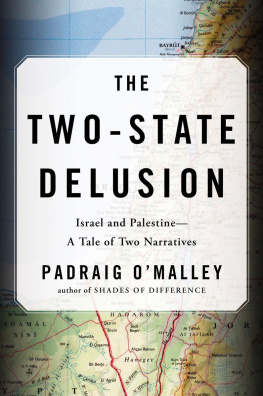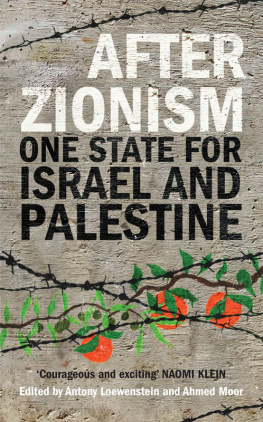Hani A. Faris is Adjunct Professor in the Department of Political Science at the University of British Columbia. He has written extensively on Arab nationalism, the Middle East in world politics, Zionism, Lebanese politics, the history of the Palestinian issue and Third World development.

This study is published in collaboration with Trans Arab Research Institute (TARI), an independent American think tank registered in the State of Massachusetts, USA, and the Center for Arab Unity Studies (CAUS) headquartered in Beirut, Lebanon, which is involved in research and publishing on the subject of Arab unity and related issues.
Published in 2013 by I.B.Tauris & Co. Ltd
6 Salem Road, London W2 4BU
175 Fifth Avenue, New York NY 10010
www.ibtauris.com
Distributed in the United States and Canada
Exclusively by Palgrave Macmillan
175 Fifth Avenue, New York NY 10010
Copyright 2013 Trans Arab Research Institute (TARI) and Center for Arab Unity Studies (CAUS)
The right of Hani A. Faris to be identified as the editor of this work has been asserted by him in accordance with the Copyright, Designs and Patent Act 1988.
All rights reserved. Except for brief quotations in a review, this book, or any part thereof, may not be reproduced, stored in or introduced into a retrieval system, or transmitted, in any form or by any means, electronic, mechanical, photocopying, recording or otherwise, without the prior written permission of the publisher.
References to websites (URLs) were accurate at the time of writing.
ISBN: 978 1 78076 094 0
eISBN: 978 0 85773 423 5
A full CIP record for this book is available from the British Library
A full CIP record for this book is available from the Library of Congress
Library of Congress catalog card: available
Contents
Hani A. Faris
Virginia Tilley
Saree Makdisi
Husam Said Zomlot
Naseer H. Aruri
Nancy Murray
Gabriel Piterberg
Marc H. Ellis
Ali Abunimah
Ilan Papp
Susan M. Akram
Salman H. Abu Sitta
Smadar Lavie
George E. Bisharat
Norton Mezvinsky
Asad Ghanem
Nadia Hijab
Leila Farsakh
Joel Kovel
Ghada Karmi
List of Illustrations
The Israeli conquest of Palestine in 1948/9 is shown at various stages of Israeli military operations.
A typical record of one of 453,000 Palestinian land owners. All Palestine is Palestinian Arab except those areas (5.4 per cent) for which Jews possess legal title deeds.
AJNF confiscated 2,500,000 donums (1 donum = 1/4 acres) which belonged to 372 Palestinian villages, comprising 55 per cent of the registered refugees.
Ethnically cleansed villages and their land boundaries.
Same as Figure 12.4, showing that village sites are still vacant in spite of Israeli urban expansion. The figure shows JNF-confscated Palestinian lands.
, showing that Palestinian land is used primarily for military purposes.
Official classification of land use showing that 88 per cent of Israel is used for purposes other than human habitation.
1,300 Palestinian villages in all of Palestine. Only 99 remained in the part of Palestine that became Israel. Others in that part were ethnically cleansed.
Palestinians were scattered in over 200 locations of refugee camps, not allowed to return home.
Those expelled from Saffuriyya village in Galilee sought refuge in adjacent regions, mostly Syria and Lebanon.
Jabaliya camp, pulverised by Israeli tanks and planes, is the temporary home of tens of ethnically cleansed southern villages.
The besieged Gaza strip (1 per cent of Palestine) is the present home for 1.5 million people expelled from 247 villages.
The return of the expelled population of Galilee will be welcomed by their families who remained at home.
Total ethnic cleansing of the south left the south almost empty till today. Expelled Gaza refugees can literally walk home.
All projections show that Palestinians will be the majority at some place or time. Hence renewed ethnic cleansing plan is discussed publicly in Israel.
To what extent do you agree or disagree with each of the following statements?
A list of different demands included in the Future Vision. Each interviewee was asked to state, for each demand, if they agreed or disagreed with each demand and the possibility to implement it.
Contributors
Hani A. Faris is Adjunct Professor in the Department of Political Science at the University of British Columbia in Vancouver, Canada. He has served on the faculty of Kuwait University, the American University (Washington, DC), Harvard University, McGill University and Simon Fraser University. Dr Faris has authored Sectarian Conflict in the Modern History of Lebanon (1980), Beyond the Lebanese Civil War (1982) and US Policy in the Middle East (1984), co-authored The Arab Position on the Israeli Invasion of Lebanon (1983) and edited Arab Nationalism and the Future of the Arab World (1987). He has written on such topics as Arab nationalism, the Middle East in world politics, Zionism, Lebanese politics, the history of the Palestinian issue and Third World development. Dr Faris has served as Assistant Director General of the Palestine Research Center (19678), Academic Vice Dean for Graduate Studies at Kuwait University (197881), President of the Association of Arab-American University Graduates (19845), advisor to the Canadian Institute for International Peace and Security (198991), member of the Board of Editors of Arab Studies Quarterly (198790), member of the Board of Editors of Contemporary Arab Affairs (2008present) and President of the Board of Directors of Trans Arab Research Institute (2007present).
Salman H. Abu Sitta is a researcher on Palestine, founder and President of Palestine Land Society (London), and author of From Refugees to Citizens at Home (2001), The Atlas of Palestine 1948 (2005) and The Return Journey (2007). He is also a member of the Palestine National Council and general coordinator of the Right of Return Congress.
Ali Abunimah is a Palestinian political activist and co-founder of the leading on-line analytical forum on IsraelPalestine, Electronic Intifada. He is the author of many related studies and essays, and the book One Country: A BoldProposal to End the IsraeliPalestinian Impasse (2006); he co-authored The Palestinian Right of Return (2001).
Susan M. Akram is Clinical Professor of Law, Boston University. She specialises in immigration law, refugee law, and domestic and international refugee advocacy. She is the author of numerous articles on the Palestinian right of return.
Naseer H. Aruri is Chancellor Professor (Emeritus) of Political Science, University of Massachusetts-Dartmouth. He has published nine books, including Jordan: A Study in Political Development (1972), The Obstruction of Peace: The US, Israel and the Palestinians (1995) and The Dishonest Broker (2003), and co-authored with Samih Farsoun,


